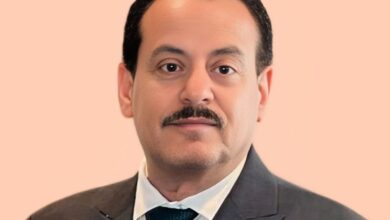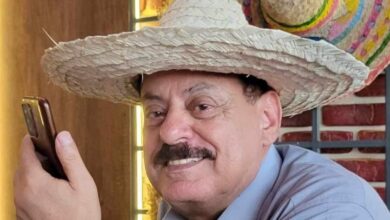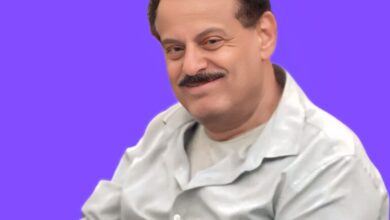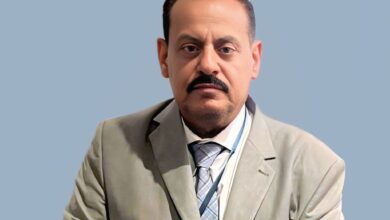On the Verge of Criminality
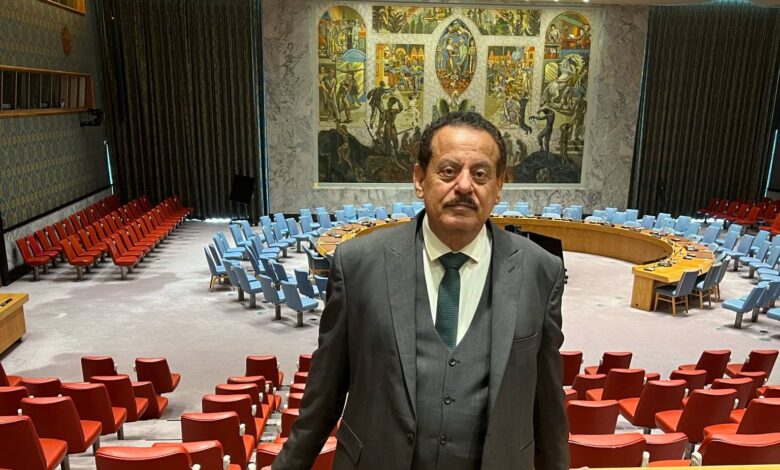
yemeni mp
Ahmed Saif Hashed
In the early stages of my life, I was as sensitive as an extremely delicate measuring device—introverted, shy, and transparent. I was acutely aware and overwhelmed by emotions, rebellious to the point of revolting against my father. My feelings ran deep, leading me to contemplate escape from my suffering in life. At times, I was mischievous to the brink of madness. This internal struggle culminated in the victory of good over evil, life over death, and humanity over all else.
Perhaps one day, a corrupt thought crossed my mind, but it was quickly countered by its opposite within me. I once desired a switch, like the one my teacher used to strike me at school, so I could exert power over those beneath me, to feel pride and pleasure—even if they were my younger siblings. Then I would remember the pain that lingered for days, leaving scars on my soul, prompting me to expel this thought entirely and uproot it from existence, refusing to allow it to return.
In my childhood, I would disturb wasp nests, and they would chase after me, stinging me in return. My face swelled from their bites, my neck and limbs thickened, and their venom coursed through my frail body. Some stings took days for me to heal, accompanied by the fever that gripped me from their assaults..
On that day, I was the aggressor, while she defended her right to live—a right to exist in a life she was forced into. It was not her fault that she produced venom, despite feeding on the same flowers from which bees make honey. I was blind to this reality then. As I grew older, I found that life did not please me, and its evils caused me pain, prompting me to seek justice, pure goodness, and a world that had yet to arrive, perhaps one that may never come.
* * *
Being sensitive and tender-hearted during a phase of your childhood, or even throughout it, does not mean you haven’t committed foolishness, impulsive acts, or behaviors that verge on the criminal. Various factors might push you, in a critical moment, to lose your composure and misjudge the consequences of your actions. You and your victim may both be casualties of your circumstances.
Being a child flooded with emotions does not guarantee that you will grow into a well-adjusted individual, nor that your adolescence will be free from bumps, sharp at times, or that it won’t stray into disarray, perhaps in a harsh manner at certain moments. Life will be filled with rebellion, and perhaps mischief and cruelty as well, particularly in a traditional society where harshness is still regarded as a virtue.
I experienced the cruelty of life within a reality even harsher. There were moments—fleeting though they were—when I found myself marked by intense emotions, committing acts that felt outside my nature and essence. Yet, these were swiftly followed by regret, guilt, and a longing to undo what I had done.
My life during part of my childhood and adolescence was marked by a certain harshness in my relationship with my father. However, I can confidently say that in the last ten years of his life, before he passed away—most likely in the last quarter of 1997—our relationship was wonderfully harmonious. There was love, warmth, and a deep sense of connection between us.
My father died content with me, and I was equally satisfied with him, perhaps even more so. He relinquished his harshness and authoritative demeanor, while I let go of my rebellions against him. We shared much love, respect, appreciation, and pride in one another. I reconciled with my father on an intimate level, yet I have not reconciled with oppressive authorities to this day. I discovered that reconciling with power is often rare, if not impossible, and that authority is corrupting; few manage to escape its clutches and traps.
My rebellion against unjust political authority, in all its forms and false masks, continues to this day. I live with an unyielding defiance—my life is a constant refusal, a struggle, and resistance against it. Perhaps this is because any oppressive power, regardless of its guise, except for my father, refuses to relinquish its hold over the people. It tirelessly seeks to subjugate them, to dominate their present and future.
All I can say is thank you, Father. You were my school, teaching me to resist the authority that seeks to impose its dominance and vision upon the people, wanting to possess them and their futures forever.
In this regard, I assert that life’s experiences, tragedies, and countless observations, along with readings of the human condition, have undoubtedly taught me to reject the practice of injustice and the oppression of others. I strive to avoid rashness and intense emotions that lead to regret and guilt. I make it a priority for my conscience to be my guide and my overseer against injustice, under any name it may take.
I find myself opposing human rights violations and freedoms, regardless of the claims made by the violating authority. I stand against injustice and tyranny in all its forms, particularly those cloaked in the guise of religion, which dress their oppression and tyranny in the sacred. I align myself with the causes of the poor, to whom I feel a deep connection, while ensuring that this does not diminish the dignity and worth of the individual. I studied law and justice, defending the rights and freedoms of people. I cherish freedom and dream that its ceiling is the sky, or even beyond, if possible.
* * *
I know that a criminal is not born a criminal, nor does one come into the world yearning for evil and crime. Rather, various factors and pressing circumstances converge, and slippery paths overshadow caution. Some humans lose their patience in moments of weakness and selfishness, or in haste and folly.
Between the ordinary and the crime I refer to lies a thin thread in moments of distress and blindness that we do not see, leading us to a regrettable end. When any of us is overtaken by remorse, fate responds: “You unleashed madness, slipped into a grave error, and there’s no time for regret.” Here, the authority of punishment becomes necessary, without excess, politicization, or injustice.
Perhaps gentle breezes in a blacksmith’s forge can turn into a mass of flames. Perhaps a sensitive and tender-hearted person may become a threat to those around him. Someone who once cared for ants and released trapped mice, understanding their need for life, could suddenly become a patricide.
Someone destined to be a distinguished judge or lawyer might, in a single night or a moment of anger, become a murderer. Even the righteous might, in a moment of weakness or rage, turn into a criminal.
* * *
I am a human who nearly succumbed to evil one day. I was on the verge of becoming a victim of my circumstances, my initial recklessness, my haste and foolishness, perhaps even my ugly selfishness, and my errant emotions that slipped from my control. I almost became a patricide, while simultaneously being a victim of a reality governed by fate and the unknown.
I still remember searching for “firewater” in “Qat’ie Aden,” hoping to buy it with the little money I had for other needs. The seller informed me that he could only sell it with a permit, as the system required.
I sought another means, boiling with anger, suppressing my immense rage, and containing my inner turmoil for a while. I bought a knife, wrapped it in white paper, and tucked it under my belt, hiding it beneath my shirt and apron. I searched for him in the mosques I usually frequented, but I found nothing, as if “the Preserver” was protecting him or favoring him, or perhaps I was shielded by a guardian angel or fortunate fate.
I looked for him in all the places he frequented, where I was supposed to find him, but that day, I found no trace. It seemed as though luck or the kindness of fate was deliberately protecting me from myself and saving him.
As I searched, I imagined what I would do. My right hand was poised like a falcon ready to swoop down. It felt as though my hand was leaping into the air to execute my intentions. As I walked nervously, I resembled that madman known as “Al-Awlaqi,” a name that had overshadowed his original identity, now simply shrouded in mystery.
He would lash out with his hands in the air, as if intending to stab the belly of anyone before him, and we would watch in astonishment, as if he were a deep-seated enigma, breathing from his depths and hidden chambers.
When the blood in my veins calmed and the fires raging within me subsided, I felt immense regret. I turned to a kind man from our village named “Saleh Al-Harish,” who was at peace with himself. He lived in Al “Khusaf” area, and I gifted him the knife, perhaps without sharing its story, or perhaps with a false excuse. The truth is, I no longer remember the details, but I clearly recall thanking luck and fate for having thwarted me in a moment of recklessness and madness. I was still a minor at that time.
Today, as my imagination revives memories buried by time, I envision that terrifying moment, realizing how close I came to becoming a criminal, or resembling those who fell into grave transgressions in moments of weakness, selfishness, or provoked folly.
I remember the folly that almost led me to prison, a shame that would haunt me endlessly, leaving me to spend the rest of my life in sorrow and torment, consumed by regret and remorse. Perhaps I would even resolve to end my life before being devoured by the eyes and whispers of others.
Yet between today and the distant past, everything has changed. I now see that extending a hand reflects a shocking backwardness, and the coarseness of speech is unbecoming of a human being.
* * *


